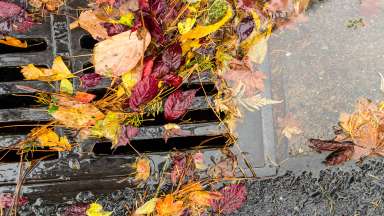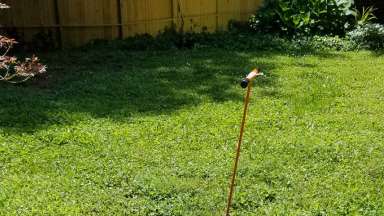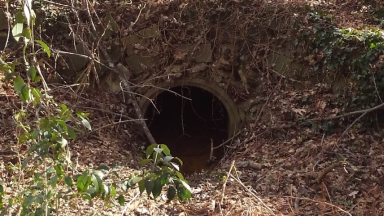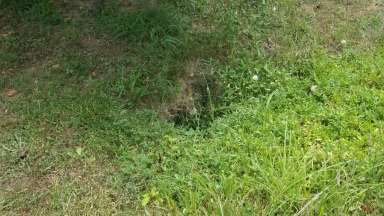Jump To:
Keep Yard waste Out of the Storm Drain
Did you know?
Yard waste can can ruin creeks and lakes. Leaves and other yard waste flow through the storm drain to our creeks, streams, lakes and rivers. When the leaves and other yard waste decay it uses up oxygen and releases pollutants that can kill plants and other organisms that live in our waterways.
Yard waste in streets and storm drains:
- Is dangerous for cyclists and motorists;
- Ruins creeks and lakes – Yard waste decays in the water using up oxygen and releasing pollutants that can kill plants and other organisms;
- Can cause flooding; and,
- Leads to more stormwater maintenance costs. We spend thousands of dollars a year to flush out clogged storm drains.
Here's how you can help:
- Leave grass clippings on the lawn (they’re good fertilizer)
- Mow away from the pavement
- Sweep or blow clippings back onto the lawn
- Make compost! Mix grass clippings with leaves and soil
- Keep leaves off the street
Yard Waste Collection
- Seasonal loose leaf collection will transition to an enhanced weekly yard waste service beginning in Fall 2026.
- This will allow residents to place their yard waste bins and up to 15 biodegradable bags out at the curb weekly.
- Existing loose leaf collection will continue through the Fall 2025 - Winter 2026 season.
- Prior to the transition, residents can continue to use their yard waste bins for loose leaves, which is currently collected on a bi-weekly basis.
View your pick-up schedule using the Raleigh Reuse Tool.
Practices for Professionals Working in Streets
Are you a landscaper or do work, like system maintenance, road marking and maintenance, street sweeping, and graffiti removal? Follow these tips to keep pollution out of the stormwater system. You'll protect the environment and help us meet permit requirements.
- Work during dry weather when you can.
- Pile materials away from storm drains, ditches, and waterways.
- Use inlet protection, like filter socks, around storm drains to keep dirt out.
- Don't pour waste material, wastewater, or pesticides/herbicides into a storm drain.
- Carry spill response details with you. Contact us if you can't contain the spill. (919-996-3940 or RaleighStormwater@raleighnc.gov)
- Avoid using coal-tar based sealants on roads. Don't apply if rain is in the forecast.
- Clean and maintain equipment at designated areas only. (i.e. indoors or where you can use inlet protection)
- Regularly inspect, test and repair equipment.
- Make sure debris is secured in equipment during collection and completely removed afterward.
- Use biodegradable solvents when removing graffiti from surfaces.
- Apply pesticides and herbicides as needed and only to areas that need it.



